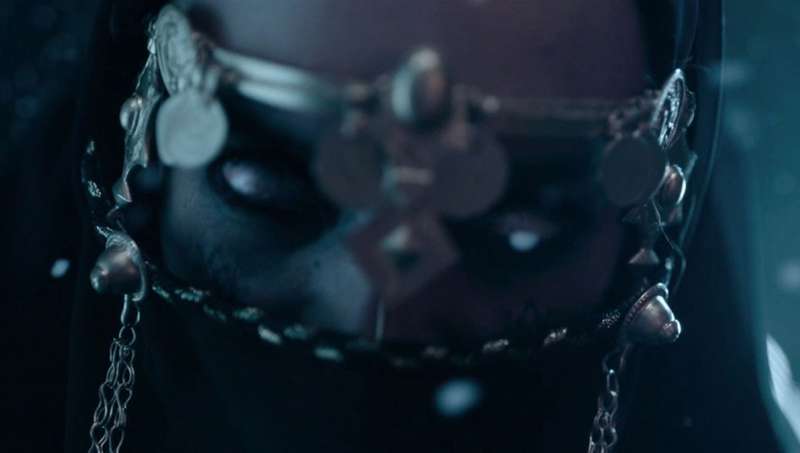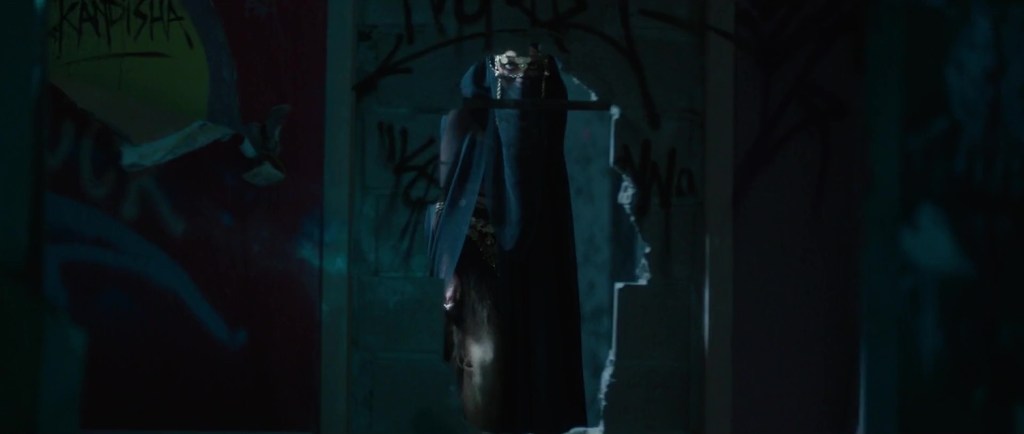Kandisha
Director: Alexandre Bustillo, Julien Maury
Writer: Alexandre Bustillo, Julien Maury
Cast: Mathilde Lamusse, Samarcande Saadi, Suzy Bemba, Mériem Sarolie, Félix Glaux-Delporto, Nassim Lyes, Dylan Krief, Sandor Funtek, Bakary Diombera, Walid Afkir
Part of: SLASH 1/2 Festival
Seen on: 18.6.2021
1-gif-review
Content Note: sexualized violence, orientalism/racism
Plot:
Amélie (Mathilde Lamusse), Morjana (Samarcande Saadi) and Bintou (Suzy Bemba) live in a Parisian banlieu. They love spending their time spraying in a neighborhood highrise set for destruction where they are unbothered by pretty much everyone. It is there that they discover the name Aisha Kandisha and Morjana tells them the story of the beautiful Moroccan woman who fell prey to Portuguese colonialists and can now be summoned to take revenge on men. After Amélie is assaulted by her ex-boyfriend, she does just that. But summoning Kandisha means getting more than she bargained for.
Kandisha is an atmospheric, well-made film that I wish had been done by a (French-)Moroccan woman instead of two white dudes.
On a technical level, Kandisha has everything you could hope for: great visuals and good sound design create a captivating atmosphere that draws you into the film, make it scary and engaging. Plus, the cast is really excellent and give the film the necessary emotional impact.
But narratively, the film is problematic as fuck. First, we get a story here for a girl who gets punished six ways to sunday for daring to fight back after getting assaulted by her ex-boyfriend (as she summons Kandisha, we see shots of him sitting desolately and regretful in the cellar he tried to rape her in). To make matters worse, the biggest part of the punishment is doled out to the people of color that she – a white girl – is friends with.
Plus, the way Aisha Kandisha (Mériem Sarolie) herself is portrayes is also problematic. We do hear about her tragic backstory and the pain and suffering she went through (at the hands of the Portuguese because the French colonial history isn’t worth mentioning in this French film), but ultimately, she is not really afforded much empathy. She is a monster, nothing more, especially since she kills men indiscriminately (and those men are thoroughly humanized before that), feeding into the “misandry narrative” where “women are out to hurt all men, but not all men are evil”. Additionally, she is a monster that could serve as a textbook example for the white gaze on women of color – intertwining sexualization and monstrosity in an exotic package.
All of this made me wish that the film was made by a Moroccan woman. Of course, that would have not guaranteed a slightly more sensitive treatment of the topic matter, but chances would have certainly been higher to not get this particular clusterfuck.
Summarizing: it could have been so good.


